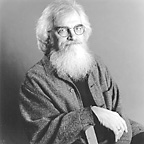What's New in Musical Education by Wah Keung Chan
/ November 1, 1999
Version française...
 Just two years after changing its name, the Glenn Gould Professional School is living up to its international
promise. This year, the school boasts 178 public masterclasses taught by its faculty and distinguished visitors
such as Yo Yo Ma, Midori and Hilary Hahn (a number unheard of at any other North American school). Started in
1987 with only 6 students, the school has been building on their strong piano program, and now has 196 full-time
students from 17 different countries, attracted largely by the impressive list of international musicians on the
faculty. The results are beginning to show: The two piano finalists at this summer's CBC Radio National
Competition for Young Performers, Stephen Ham and David Jalbert, are both studying with faculty member Marc
Durand. According to violinist Rennie Regehr, the school's dean for eight years, "Our goal is to provide students
with the opportunity to work with world-class performing artists, to rub shoulders with artists at a very high
level." Just two years after changing its name, the Glenn Gould Professional School is living up to its international
promise. This year, the school boasts 178 public masterclasses taught by its faculty and distinguished visitors
such as Yo Yo Ma, Midori and Hilary Hahn (a number unheard of at any other North American school). Started in
1987 with only 6 students, the school has been building on their strong piano program, and now has 196 full-time
students from 17 different countries, attracted largely by the impressive list of international musicians on the
faculty. The results are beginning to show: The two piano finalists at this summer's CBC Radio National
Competition for Young Performers, Stephen Ham and David Jalbert, are both studying with faculty member Marc
Durand. According to violinist Rennie Regehr, the school's dean for eight years, "Our goal is to provide students
with the opportunity to work with world-class performing artists, to rub shoulders with artists at a very high
level."
The Professional School owes its existence to the Royal Conservatory's long and rocky relationship with the
University of Toronto, which was finally terminated in 1990. Up to that point, the Royal Conservatory had
functionned as a community or preparatory school. "When I got here, just after the Conservatory because
independent, our goal was simply to offer an alternative to the university degree environment, with an emphasis
on performance. Today, we liken ourselves to the Peabody Conservatory, the New England Conservatory, Gill
Hall and the Royal Academy in England," Rennie Regher explains.
The school's emphasis on performance is reflected in the time devoted to private lessons (1.5 hrs per week vs. 1
hr at universities) and mandatory masterclasses. History and theory classes are designed in accordance with what
the students will be performing. Three of the school's four academic programs are intended for those with a
university degree, while a partnership with the British columbia Open University allows students to receive a
Bachelor of Music degree after 4 years.
"The school has developped a good orchestra," said Regehr. On the horizon, the voice department began just 4
years ago and will be expanding, and an opera school is also planned. "We face space problems with our current
facility," added Regehr, "but we are planning a capital campaign for a new concert hall."
National Academy Orchestra
By Wah Keung Chan
In March 1999, the Hamilton-based National Academy Orchestra, which is the orchestra of the Boris Brott
Summer Music Festival, won the federal competition to form a national music school over 21 other applicants.
Boris Brott, the director of the school, said the academy, which will be a training ground for Canada's
professional orchestras, will operate with a budget of $1.1 million, with two-thirds coming from Canadian
Heritage and the Youth Employment Experience program, and the balance from private and corporate donations.
The academy will run over 26 weeks (up from the previous single six-week summer session) with sessions in
spring, summer and fall. The forty apprentice musicians will be paired in concerts with mentors chosen from
Canada's professional orchestras. Masterclasses will be held for career development. Furthermore, apprentices
will be paid a stipend ($400/week) for their services after passing a rigorous audition process.
The brain-child of Boris Brott, the National Academy Orchestra has existed for 12 years. Brott explains, "We try
to duplicate professional life. The orchestra learns two or three new programs every week. We expect our
apprentices to come in ready to be employed." Brott cautions that the National Academy Orchestra is not a
replacement for the National Youth Orchestra, which operates a summer training program for young
instrumentalists. "We have a need for both programs," he said. The National Academy Orchestra will join the
network of Canadian national schools of the arts, which include the National Ballet and Theatre schools.
Version française... |
|


